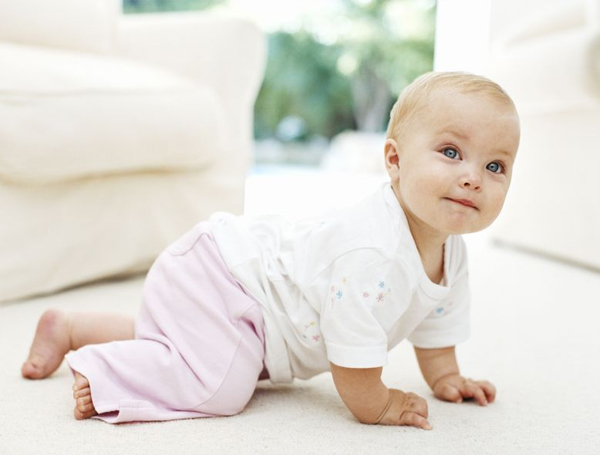
When you are handed with your little angel, you tend to notice every sound he makes, observe his movements and make out what they mean. Babies may not speak with words but they have other ways of expressing themselves. Learning to read your baby’s body language can help you know more about their feelings and moods.
Let’s unravel some of the body language of babies:
1. Scrunching-Up Knees
A baby scrunches up his knees when he experiences digestive discomfort. When he goes through constipation, gas, or uneasy bowel movements, he tends to scrunch up his knees.
What should you do: Try to comfort your baby. If he is scrunching up because of gas, help your baby burp. If you breastfeed your baby, you should avoid eating foods that can cause gas in babies. If your baby often goes through constipation, take him to the doctor. Make sure you five your baby enough water and some diluted prune juice.
2. Arching The Back
When your baby feels pain or is uneasy, he responds by arching his back. most of the time, babies arch their backs when they go through heartburn.
What should you do: Try to comfort your little one. If your baby happens to arch his back in the middle of feeding, it could be because of reflux. Stop feeding if your baby cries or spits up. Make him comfortable first.
3. Head Banging
Babies usually bang their head against the crib bars or on the floor when they are a victim of pain or irritability. The head banging helps to calm the baby.
What should you do: if you notice that your baby hits her head often for long spans, you should definitely visit a pediatrician and get your baby checked. Do not ignore the baby’s head banging.
4. Kicking Legs
You must have noticed babies kicking their legs when you play with them, talk to them or when they are in a bathtub. Babies usually kick legs when they are overjoyed and are having a good time. Leg kicking is their way of showing happiness.
What should you do: you can place your baby on your lap and sing him a song. The song might flow well with the kicking and allow your baby to feel happier.
5. Arm Jerks
Arm jerks are how a baby reacts to the environment and shows that he is alert. Most of the time, babies thrash their arms when they hear a loud noise all of a sudden or when they are exposed to bright light. Babies also tend to jerk their arms when you put them on the bed or the floor because they suddenly feel loss of support and insecure.
What should you do: Arm jerks are baby’s reflex and it goes away after four months. Make sure you swaddle your baby when you make him sleep. Swaddling make you baby feel secure and if offers him enough support to prevent him from jerking his arms.
6. Grabbing Ears
Babies are in their process of discovering their body parts. They grab their ears and express happiness at discovering it. On the flip side, they might grab and pull their ears when they are teething. In case your baby grabs his ears and cries, he could be suffering from an ear infection.
What should you do: Share the happiness of discovering his ears. Comfort and soothe him if it is because of teething. Take him to a doctor in case he is suffering from ear infection.






